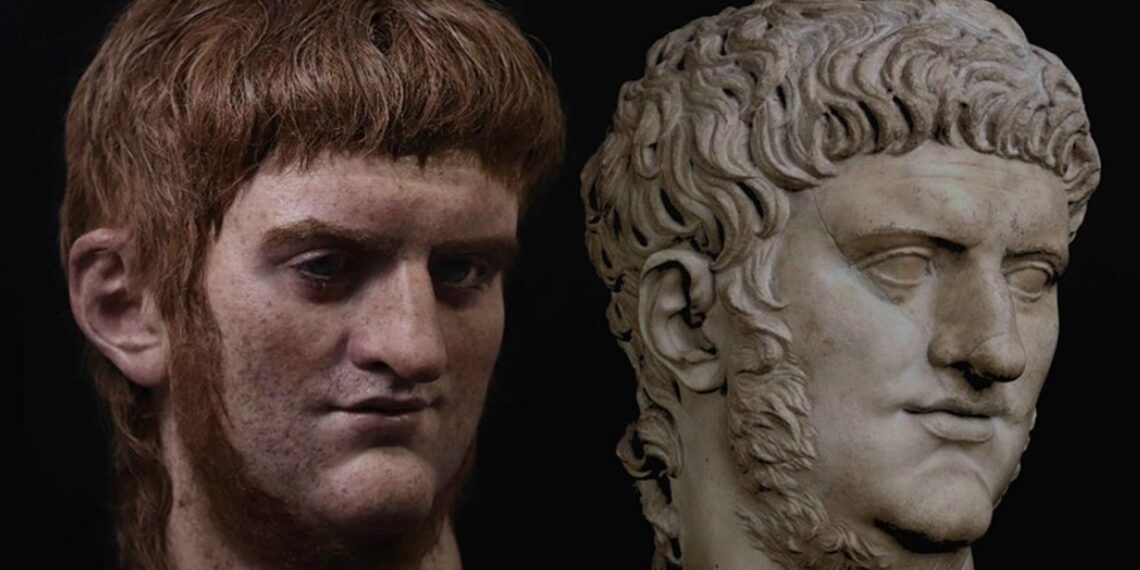He was one of Rome's most notorious rulers: Who Was Emperor Nero?
Nero was notorious for his cruelty, licentiousness and strangeness. But was he really as bad as history tells him?

(AD 37-68) Roman Emperor (AD 54-68) Nero was the son of Agrippina the Younger. He was raised in his childhood by the great thinker and statesman Seneca. When he became emperor at the age of 17, he made Seneca his chief adviser. Burrus, commander of the imperial guard, also positively influenced Nero, the two of whom were able to curb Nero's frenzied passions for several years. Nero killed his mother in 59. He then kicked and murdered his pregnant wife, Poppea. Then he went astray and became a dictator as ruthless as Caligula. A terrible fire in 64 lasted a week, and half the city was burned. It is said that Nero started this fire and played the lyre while watching the flames. In 68 some of his generals revolted against him and drove him from Rome. On the way, he committed suicide.
Life story
Emperor Nero was adopted at the age of 13 by his uncle, who became the Roman emperor, and ascended the throne at the age of 17.
Nero was one of Rome's most notorious rulers. He became famous for his cruelty and licentiousness. He ascended the throne in 54 AD at the age of 16 and died at the age of 30. He reigned in a time of great social and political changes. He oversaw major events such as the Great Roman fire and the Boudica Revolt in Britain. He allegedly killed his mother and two wives. He was more interested in art than government affairs.
Much of what we know about Nero comes from the surviving works of Tacitus, Suetonius, and Cassius Dio. All were written 10 years after Nero's death. His accounts have long shaped our understanding of this emperor's reign. However, rather than being impartial narrators who narrated past events in an objective way, these writers and the sources they used wrote their opinions very clearly.
Nero's death brought a period of chaos and civil war that only ended when a new dynasty, Flavius, took power. All writers of the Flavian period were interested in legitimizing this new family in power by portraying the Julius-Claudius in the worst possible way, turning history into propaganda. These narratives became 'historical' sources used by later writers. Thus, they perpetuated this fictitious depiction of Nero that has survived to this day.
Age 13 – adoption
Nero was 2 years old when his mother was exiled and 3 when his father died. His inheritance was taken away and he was sent to live with his aunt. However, Nero's fate changed once again when Claudius became emperor. His property was restored and his mother Agrippina was recalled from exile.
In AD 49, the emperor Claudius married Agrippina and adopted Nero the following year. Therefore, Lucius Domitius Ahenobarbus changed his name to Nero Claudius Caesar Drusus Germanicus. In Roman times it was customary to change names after adoption (for the adoptive father to abandon his last name). The name Nero was common among members of the Claudian family, especially in Claudius' class.
Nero and Agrippina provided Claudius with a politically useful link based on Augustus that would strengthen his position.
When Claudius died in AD 54, Nero became emperor just two months before he turned 17.
His coming to power was easy as he was supported by the army and the senate. His mother, Agrippina, was particularly influential early in his reign.
According to the claims of the Roman historians Tacitus, Suetonius, and Cassius Dio, Nero was overwhelmed by Agrippina's interventions and decided to kill her.
With no witnesses to the event, there is no way of knowing if this happened or how it happened. Still, this hasn't stopped historians from inventing compelling stories about Agrippina's murder. They suggested that Nero tried (and failed) to kill his mother with a boat designed to sink, before sending his men to take care of his business.
Allegedly, Agrippina asked the men to stab her in the belly which gave birth to Nero. These last words of Agrippina were undoubtedly taken from stage plays.
It is also possible (or possibly forced) that Agrippina chose to kill herself when her conspiracy against her son was exposed, as Nero claims.
Great Roman Fire
On July 19, 64 AD, a fire broke out near the Circus Maximus. Soon after, flames swept all over Rome and the fire raged for nine days. Of the 14 districts of the capital, three were completely destroyed, while only four were saved.
Rome has already been burned to the ground (and this would repeat in its long history). However, this event was so severe that it became known as the Great Roman Fire.
Later historians blamed Nero for this event. They claimed to have set the capital on fire to clear the area for the construction of a new grand palace. According to Suetonius and Cassius Dio, Nero was watching the city burn from his imperial residence while playing the lyre and reading a poem about the fall of Troy. However, this story was fictional.
The only historian who lived at the time of the great Roman fire, Tacitus (even though he was 8 years old), wrote that Nero was not in Rome when the fire started, but then returned to the capital to lead relief efforts.
